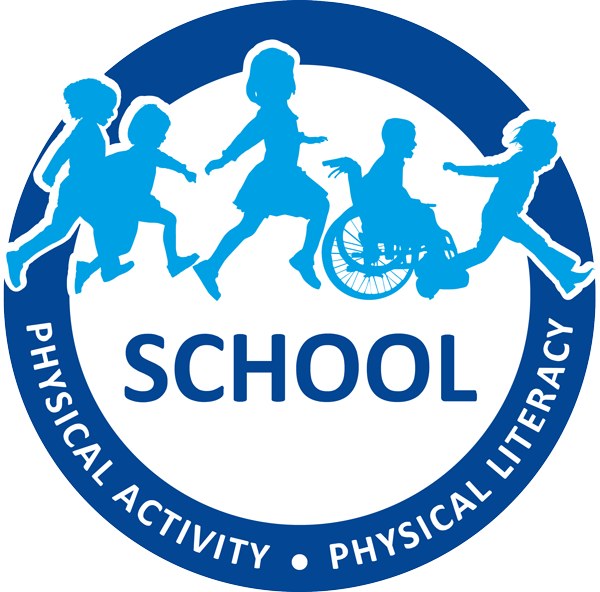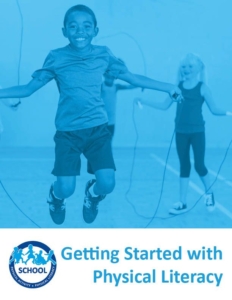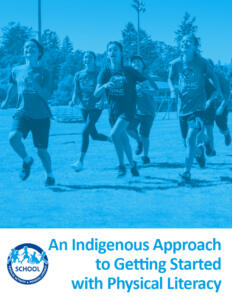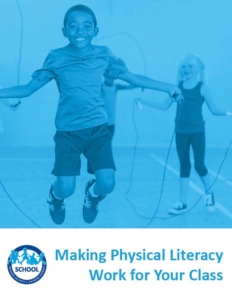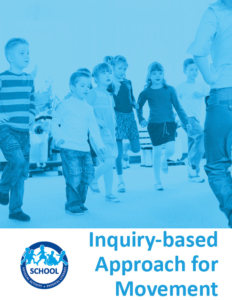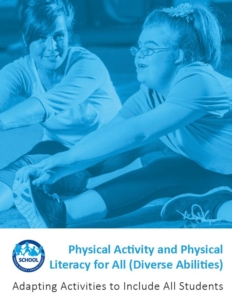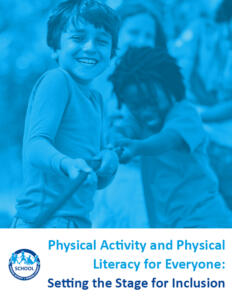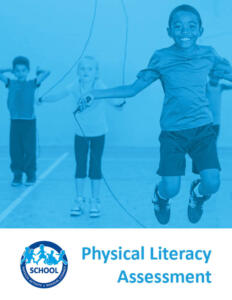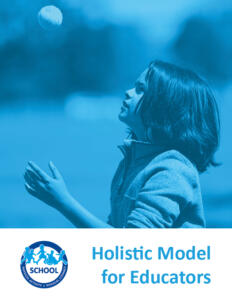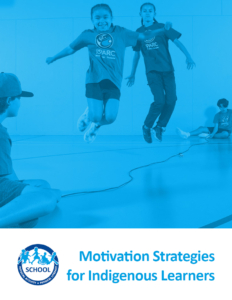Free, interactive sessions delivered by a live facilitator to a small number of participants. 1-2 hours in length, these are ideal for professional development days, conferences or district-wide training.
Workshops are available both in person and virtually for the 2024-2025 school year.
Current Workshops
Getting Started with Physical Literacy
If you are wondering what physical literacy is and how you can incorporate it into your K-7 instruction, this workshop is for you!
Gain an understanding of the theory behind this approach and learn some practical ways that you can start to develop your students’ physical literacy next class. A mix of theory and hands-on instruction makes this a fun and informative workshop. Come ready to move!
An Indigenous Approach to Getting Started with Physical Literacy
Developed in consultation with Indigenous communities and educators, and with leadership from I·SPARC, this workshop brings Indigenous perspectives that honour the First Peoples’ Principles of Learning to physical literacy theory.
Learn some practical ways that you can start to develop your students’ physical literacy, and engage with other Indigenous communities in a storytelling method, to incorporate physical literacy in and around your school.
Priority will be given to educators working in First Nations schools or B.C. public schools with a high population of Indigenous learners
Making Physical Literacy Work for Your Class
Come ready to move, because this interactive workshop shows you how physical literacy instruction can work in your class. Learn fun activities based on the principles of physical literacy and see how easy it is to include these in the gym, classroom or playground. Learn the “how to” and find out how to include this approach in your K-7 physical education planning.
This could revolutionize the way you develop physical activity and physical literacy.
Skills-based Learning Through Games
When teaching games, it is hard to separate skills from tactics. In reality, the tactical use of skills is the essence of effective game play.
In Skills-based Learning Through Games (SLTG), discover a fun and popular approach to teaching the individual skills of a game in a tactical context, prompting students to learn how to use those skills. If you are keen to get your students thinking about how to use their skills, this workshop is for you!
*This workshop is only available in person.
Physical Activity and Physical Literacy for All (Diverse Abilities)
Wondering how to adapt your K-7 physical literacy instruction to meet the needs of all your students? This is the workshop for you!
Learn how to modify activities for students with diverse physical and intellectual abilities. Get great hands-on tips and ideas to include all your students in activity and physical literacy.
Physical Activity and Physical Literacy for Everyone: Setting the Stage for Inclusion
Do all of your students feel included and respected in physical and health education, and in class physical activities?
The focus of this 90-minute workshop is to equip educators to take proactive actions that will ensure that every student can fully participate in all aspects of physical activity and learning. Discuss specific considerations and inclusion strategies, and learn how to make a difference in the enjoyment of physical activity for all students.
Physical Literacy Assessment
Wondering how to assess physical literacy?
This workshop demonstrates how to use PLAYbasic for Educators as a physical literacy assessment tool. By observing how your students move, you can plan your physical literacy activities and support your students learning over time.
Holistic Model for Educators
I·SPARC presents the Holistic Model for Educators Virtual Workshop for Indigenous educators and educators working in B.C. schools with high populations of Indigenous learners. The Holistic Model was developed in consultation with Indigenous communities across Canada and is based on the medicine wheel’s core values and teachings.
Motivation Strategies for Indigenous Learners
This workshop will work towards an understanding of what physical literacy is, how building confidence and competence increases motivation for physical activity, and how educators can build supports for students’ motivation.
